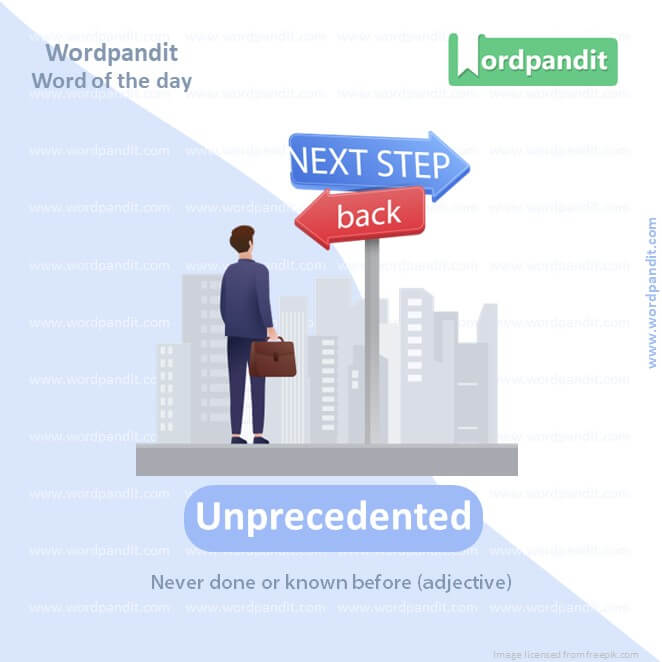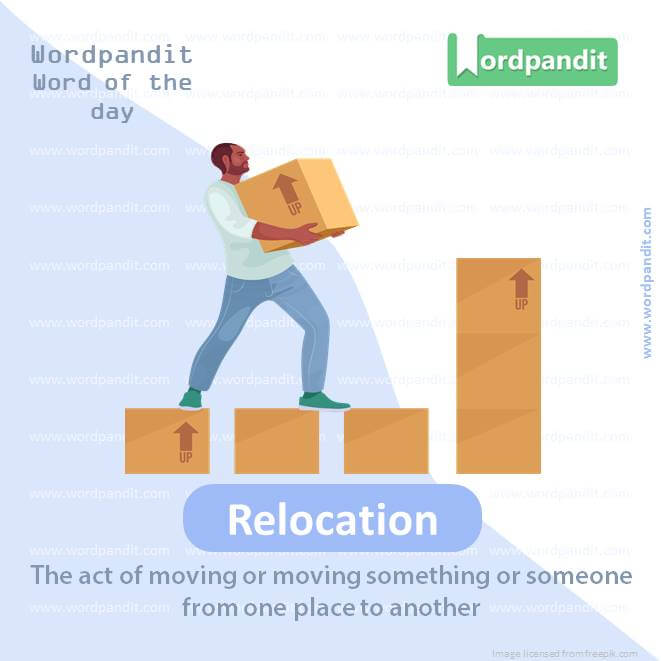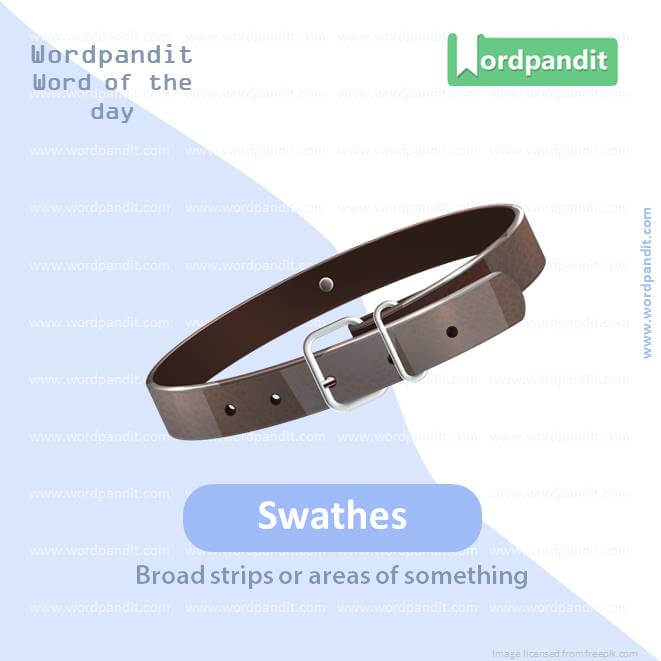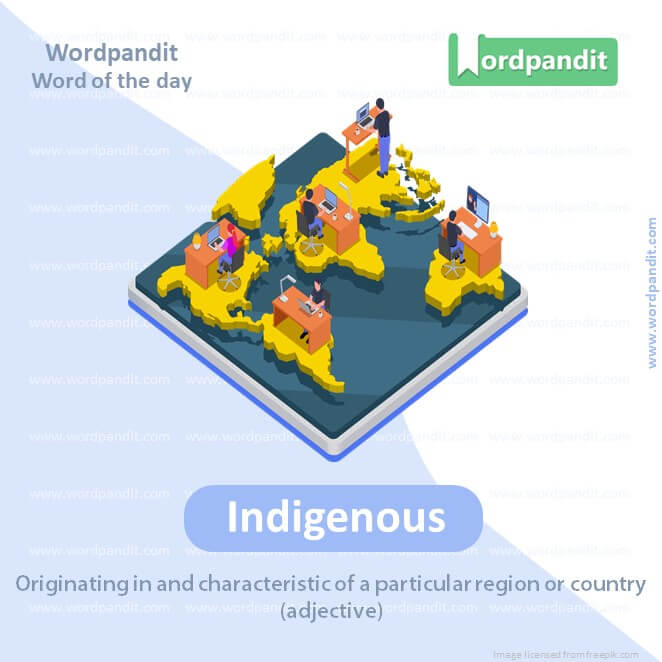Daily Vocabulary Words: List of Daily Used Words in Leading Indian Newspapers
Hi there. Welcome to this special section @ Wordpandit. Our endeavour here is straightforward: highlighting daily vocabulary words that you would come across in leading newspapers in the country. We have included the following newspapers in our selection:
• The Times of India
• The Economic Times
• Hindustan Times
• Mint
• Indian Express
We are putting in extensive work to develop your vocabulary. All you have to do is be regular with this section and check out this post daily. This is your repository of commonly used words; essentially, we are posting a list of daily used words. Hence, this has significant practical application as it teaches you words that are commonly used in leading publications mentioned above.
Visit the website daily to learn words from leading Indian newspapers.

WORD-1: Factoid
CONTEXT: Another factoid that is encouraging is the steady journey of the reducing share of subsidies in the budget.
SOURCE: Hindustan Times
EXPLANATORY PARAGRAPH: A factoid is a tiny piece of information that is interesting or fun to know! It’s like a little fact that you might share with your friends to surprise them. For example, did you know that honey never spoils? That’s a factoid!
MEANING: A small, interesting piece of information or fact (noun).
PRONUNCIATION: FAK-toid
SYNONYMS: Tidbit, trivia, nugget, detail, snippet, fragment, morsel.
USAGE EXAMPLES:
1. Mom shared a factoid about bees that made me excited about science.
2. Johnny loves collecting factoids about dinosaurs; he knows so much!
3. The teacher told us a factoid about space, and everyone’s eyes widened.
4. During dinner, Grandpa always has a factoid ready to make us smile.

WORD-2: Precedent
CONTEXT: In other words, resettlement and rehabilitation were conditions precedent to evictions and demolitions, including for occupants and residents without formal title to land.
SOURCE: Hindustan Times
EXPLANATORY PARAGRAPH: Think of a precedent like a rule that helps us know what to do in a certain situation because we did something similar before. It’s like having a guide to know how to play a new game because you’ve played a similar game before!
MEANING: Never done or known before (adjective).
PRONUNCIATION: PRES-uh-dent
SYNONYMS: Model, example, guide, standard, criterion, reference, template.
USAGE EXAMPLES:
1. The teacher set a precedent for good behavior by praising those who shared.
2. When playing games, knowing the rules is like having a precedent to follow.
3. Mom explained a precedent from her childhood to help us understand her decision.
4. In our club, there’s a precedent: always help each other like a team.

WORD-3: Relocation
CONTEXT: There was also an existing relocation scheme.
SOURCE: Hindustan Times
EXPLANATORY PARAGRAPH: Relocation is when you move from one place to another. It’s like when you play with your toys in the living room and then decide to move them to your bedroom – that’s relocation!
MEANING: The act of moving or moving something or someone from one place to another.
PRONUNCIATION: ree-loh-KAY-shun
SYNONYMS: Move, transfer, migration, shifting, moving, resettlement, change.
USAGE EXAMPLES:
1. The family celebrated their relocation by exploring their new neighborhood.
2. Bears practice relocation by finding new areas to hunt for food.
3. The company’s relocation brought employees closer to their workplace.
4. Jack’s relocation to a new school introduced him to many new friends.
WORD-4: Reaffirmation
CONTEXT: A recent order of the Allahabad high court (HC) is important in its reaffirmation of the progressive ethos of the Constitution.
SOURCE: Hindustan Times
EXPLANATORY PARAGRAPH: Reaffirmation is like saying, “Yes, I still believe in this!” It’s when you want to make extra sure everyone knows you’re sticking to your decision or belief.
MEANING: The act of confirming or stating again that you strongly believe in something (noun).
PRONUNCIATION: ree-af-uhr-MAY-shun
SYNONYMS: Confirmation, restatement, reiteration, validation, declaration, assertion, renewal.
USAGE EXAMPLES:
1. The team’s captain made a reaffirmation of their commitment to winning.
2. After a challenging day, a bedtime reaffirmation helped Alice feel braver.
3. The mayor’s reaffirmation of support boosted the community’s confidence.
4. During the ceremony, the couple exchanged vows as a reaffirmation of their love.

WORD-5: Swathes
CONTEXT: That is when the bulldozers arrive, homes are torn down, and swathes of people are evicted.
SOURCE: Hindustan Times
EXPLANATORY PARAGRAPH: Swathes are like big, cozy blankets covering a vast area, like when you see fields of flowers stretching as far as you can see – that’s swathes of beauty!
MEANING: Broad strips or areas of something.
PRONUNCIATION: swawthz
SYNONYMS: Expanse, stretch, field, spread, breadth, range, extent.
USAGE EXAMPLES:
1. The artist painted swathes of color, making the canvas come alive.
2. From the mountaintop, we could see swathes of green forests below.
3. The farmer planted swathes of sunflowers, creating a stunning landscape.
4. Our hike took us through swathes of meadows filled with wildflowers.
WORD-6: Non-reconciled
CONTEXT: One move that will clear the clutter of petty tax cases is the withdrawal of tax demands on the large number of “petty, non-verified, non-reconciled or disputed direct tax demands.
SOURCE: Hindustan Times
EXPLANATORY PARAGRAPH: Non-reconciled is when things or people haven’t made up after a disagreement. It’s like friends who had an argument but haven’t said sorry yet – they’re still non-reconciled.
MEANING: Not having resolved differences or conflicts, not made up (adjective).
PRONUNCIATION: non-REK-un-sahyld
SYNONYMS: Unsettled, unresolved, unreconciled, lingering, ongoing, unaddressed, persistent.
USAGE EXAMPLES:
1. The siblings were non-reconciled after the fight over the TV remote.
2. Despite the apology, there was a feeling of non-reconciliation in the air.
3. The non-reconciled issue continued to affect the team’s harmony.
4. Tim and Sarah remained non-reconciled even after the mediation session.
WORD-7: Pageantries
CONTEXT: The pomp and pageantries of high international diplomacy, therefore, provide a domestic boost.
SOURCE: Hindustan Times
EXPLANATORY PARAGRAPH: Pageantries are like big, colorful parades or shows with lots of music, costumes, and excitement. Imagine a grand celebration with people dancing and singing – that’s pageantries!
MEANING: Grand and elaborate displays or ceremonies, often with music and costumes (noun).
PRONUNCIATION: puh-JAN-trees
SYNONYMS: Spectacle, display, ceremony, extravaganza, performance, show, celebration.
USAGE EXAMPLES:
1. The royal wedding was a pageantry of elegance and tradition.
2. Each year, the town hosts a pageantry to celebrate its history and culture.
3. The circus featured pageantries that left the audience in awe.
4. The school’s talent show was a delightful pageantry of young talents.
WORD-8: Pandering
CONTEXT: This was most recently evident in the above-mentioned immigration law where centrist Macron was perceived as pandering to the far-Right to pass a law that was intrinsic to his second-term pledges.
SOURCE: Hindustan times
EXPLANATORY PARAGRAPH: Pandering is when someone does things just to make others happy, even if it’s not the right thing to do. It’s like always playing the game your friend likes, even if you prefer a different one – that’s pandering!
MEANING: Doing things to please others, often insincerely (verb).
PRONUNCIATION: PAN-der-ing
SYNONYMS: Catering, indulging, pleasing, gratifying, appeasing, placating, flattering.
USAGE EXAMPLES:
1. The politician was accused of pandering to popular opinions instead of staying true to their values.
2. Sarah felt uncomfortable pandering to her friend’s demands just to be liked.
3. The chef resisted pandering to the critics and continued to cook from the heart.
4. The comedian refused to start pandering to the audience’s expectations.
WORD-9: Trilaterals
CONTEXT: This has created the foundations for strong maritime cooperation in security areas including illegal fishing and anti-piracy as well as enabled trilaterals with “like-minded” nations such as Australia and the United Arab Emirates.
SOURCE: Hindustan times
EXPLANATORY PARAGRAPH: Trilaterals are like three friends holding hands in a circle, always staying connected. In the same way, trilaterals involve three things working together or being connected.
MEANING: Involving or connecting three things or parties (adjective).
PRONUNCIATION: try-LAT-er-uhl
SYNONYMS: Triangular, three-sided, involving three, triple, trinary, threesome, tripartite.
USAGE EXAMPLES:
1. The trilateral agreement between the countries promoted cooperation and peace.
2. The trilaterals discussion involved representatives from the government, business, and the community.
3. Their trilateral friendship remained strong despite the challenges they faced.
4. The trilateral trade deal aimed to benefit all three nations involved.

WORD-10: Indigenous
CONTEXT: India initiative that requires technology transfers and advanced know-how for indigenous equipment.
SOURCE: Hindustan times
EXPLANATORY PARAGRAPH: Indigenous means something or someone that belongs to a place from the very beginning. It’s like saying that certain animals, plants, or people have always been a part of a specific area.
MEANING: Originating in and characteristic of a particular region or country
(adjective).
PRONUNCIATION: in-DIJ-uh-nuhs
SYNONYMS: Native, original, local, aboriginal, autochthonous, endemic, homegrown.
USAGE EXAMPLES:
1. The indigenous people of the forest have a deep connection with nature.
2. The rare flowers are indigenous to this mountain range and nowhere else.
3. Learning about the indigenous culture helped us appreciate their traditions.
4. Protecting the indigenous species is crucial for maintaining the ecosystem’s balance.
Vocabulary 100 Words
Diving into the exciting waters of language learning, encountering a list of ‘vocabulary 100 words’ is a common step. These lists, often tailored to specific proficiency levels or topics, present microcosms of the language, cradling essential words that broaden our linguistic comprehension. However, to effectively grasp ‘vocabulary 100 words’, a well-crafted strategy is imperative.
The cornerstone of learning any ‘vocabulary 100 words’ lies in understanding each word with depth. This involves more than just registering the meaning. It extends to understanding its use in different contexts, its nuances, and its connotations.
When navigating ‘vocabulary 100 words’, pacing is extremely important. Rather than trying to absorb all the words at once, a steady approach of learning a few words every day promotes better retention. This assures your brain is not overwhelmed with information, resulting in more effective learning.
Interactivity adds a significant boost while engaging with ‘vocabulary 100 words’. Employ tools like flashcards or digital language-learning apps to make your learning experience more engaging. Regular tests or quizzes provided by these platforms can be beneficial in gauging your progress and identifying areas that need additional work.
Real-world usage significantly enriches understanding of ‘vocabulary 100 words’. Incorporate the words into your daily conversations, writing, or social media interactions. This practice element not only empowers retention but also bolsters your confidence in using these words correctly.
In conclusion, mastering ‘vocabulary 100 words’ is an enriching journey that calls for systematic learning, paced approach, engaging tools, and practical application. As you venture down this path, you’ll find the ‘vocabulary 100 words’ transforming from daunting lists into friendly allies, accompanying you on your thrilling linguistic exploration.













